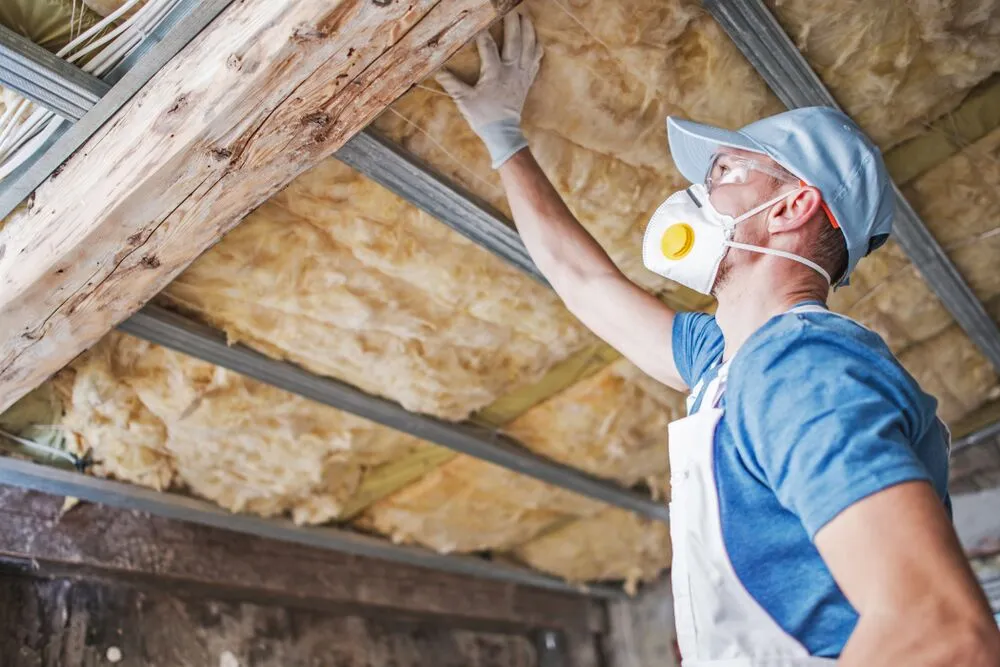Indoor air quality is a significant concern for homeowners and businesses alike. Poor air quality can lead to various health issues, including allergies, asthma, and other respiratory problems. One often overlooked aspect of maintaining good indoor air quality is the state of your insulation. Old or damaged insulation can contribute to poor air quality, making insulation removal a critical task. As insulation removal experts, we understand the importance of this process and how it can vastly improve the air you breathe indoors.
Understanding Insulation and Its Role
Insulation is a vital component of any building, providing thermal resistance to keep the interior comfortable. It helps in maintaining a consistent temperature, reducing energy costs, and minimizing noise. However, over time, insulation can degrade, becoming less effective and potentially harmful.
Types of Insulation
There are several types of insulation used in buildings, including:
- Fiberglass Insulation: Made from fine glass fibers, it’s one of the most common types used in homes and commercial buildings.
- Cellulose Insulation: Composed of recycled paper products, it’s treated with fire retardants and is an eco-friendly option.
- Spray Foam Insulation: A mixture of isocyanate and polyol resin that expands and solidifies to fill gaps and provide an airtight seal.
- Mineral Wool Insulation: Made from volcanic rock or industrial waste, it’s resistant to fire and moisture.
Each type of insulation has its own lifespan and potential issues that can arise over time.
Why Insulation Removal is Necessary
Degradation and Contamination
Over the years, insulation materials can break down due to various factors such as moisture, pests, and general wear and tear. When insulation degrades, it can release particles into the air, which can be harmful when inhaled. For instance, old fiberglass insulation can shed tiny glass fibers, and cellulose insulation can produce dust.
Mold and Mildew Growth
Moisture intrusion is a common problem in many buildings, leading to mold and mildew growth within the insulation. Mold spores can become airborne, significantly deteriorating indoor air quality. Mold exposure can cause allergic reactions, respiratory issues, and other health problems.
Pest Infestation
Rodents and insects can infest insulation, leaving behind droppings, urine, and nests. These contaminants can become airborne, contributing to poor air quality and posing health risks.
Outdated or Improper Installation
Insulation technology and standards have improved over the years. Older insulation may not meet current standards, resulting in less efficient thermal performance and potential air quality issues. Additionally, improperly installed insulation can leave gaps and allow contaminants to circulate through the air.
Benefits of Insulation Removal
Removing old or damaged insulation and replacing it with new materials offers several benefits that directly impact indoor air quality.
Elimination of Contaminants
The most immediate benefit of insulation removal is the elimination of contaminants. Removing degraded, moldy, or pest-infested insulation ensures that these harmful particles are no longer present in your home or building.
Prevention of Mold and Mildew
By removing insulation that has been exposed to moisture, you can prevent the growth of mold and mildew. New insulation materials, when properly installed, help maintain a dry environment, reducing the risk of mold development.
Improved Airflow and Ventilation
New insulation installation often involves addressing ventilation issues that may have contributed to the initial problems. Proper ventilation ensures that air circulates efficiently throughout the building, reducing the buildup of airborne contaminants.
Enhanced Energy Efficiency
While not directly related to air quality, improved energy efficiency is a significant benefit of replacing old insulation. New insulation materials are more effective at maintaining temperature, reducing the workload on HVAC systems. This can help prevent the spread of contaminants through the air ducts, further improving air quality.
Increased Comfort and Health
The overall comfort of your living or working space is enhanced with new insulation. Proper insulation helps maintain a consistent temperature and humidity level, creating a healthier and more comfortable environment. This can lead to better overall health and well-being for occupants.
The Insulation Removal Process
As insulation removal experts, we follow a thorough process to ensure that the job is done safely and effectively.
Assessment and Inspection
The first step in the insulation removal process is a comprehensive assessment and inspection. This involves examining the current state of the insulation, identifying areas of contamination, and determining the best approach for removal.
Preparation
Preparation is key to a successful insulation removal project. This includes setting up containment barriers to prevent the spread of dust and contaminants, as well as ensuring proper ventilation in the work area. Personal protective equipment (PPE) is worn by all workers to ensure safety.
Removal
The removal process varies depending on the type of insulation and the extent of contamination. For example:
- Fiberglass Insulation: Carefully removed in sections to prevent the release of glass fibers.
- Cellulose Insulation: Vacuumed out using specialized equipment to minimize dust.
- Spray Foam Insulation: Cut and scraped away, with careful handling to avoid releasing chemicals.
Disposal
Proper disposal of old insulation is crucial. Contaminated insulation is handled according to local regulations to ensure it does not pose a hazard to others. This often involves sealing the materials in heavy-duty bags and transporting them to designated disposal sites.
Cleaning and Decontamination
After the insulation is removed, the area is thoroughly cleaned and decontaminated. This includes vacuuming any remaining dust and using antimicrobial treatments to eliminate mold spores and bacteria.
Installation of New Insulation
Once the area is clean, new insulation is installed. Modern insulation materials are chosen for their efficiency and safety, ensuring that they provide the best performance without compromising air quality.
Choosing the Right Insulation
When replacing insulation, it’s important to choose the right type for your specific needs. Factors to consider include:
- Thermal Resistance (R-Value): Higher R-values provide better thermal resistance.
- Moisture Resistance: Some insulation materials are more resistant to moisture, reducing the risk of mold.
- Fire Resistance: Certain materials offer better fire protection, enhancing overall safety.
- Environmental Impact: Eco-friendly options, such as cellulose, reduce the environmental footprint.
Consulting with insulation removal experts can help you make the best choice for your home or building.
Conclusion
Insulation removal is a crucial step in improving indoor air quality. By addressing issues such as degradation, contamination, mold, and pests, you can create a healthier living or working environment. The process involves careful assessment, preparation, removal, disposal, cleaning, and installation of new insulation. As experts in insulation removal, we ensure that each step is performed with the utmost care to provide you with the best possible results. By investing in proper insulation maintenance and replacement, you can enjoy cleaner air, enhanced comfort, and better overall health.










































